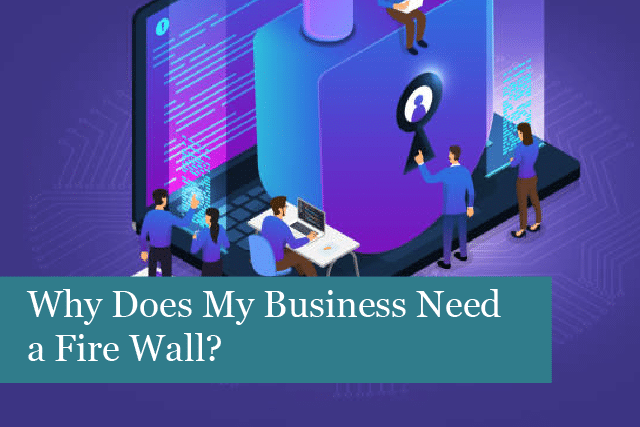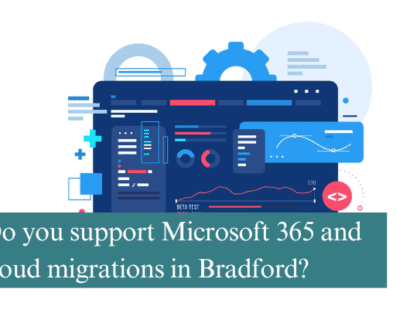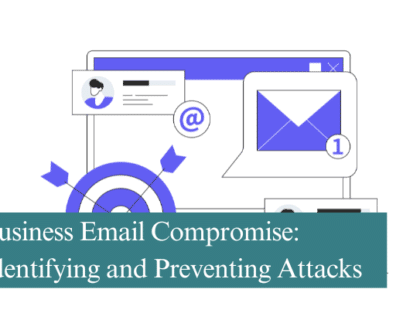
Many businesses run their network without a firewall, thinking the security measures in place will keep their infrastructure and valuable business data safe a secure. However, that couldn’t be further from the truth. It’s a fact that a business needs a firewall in addition to other security measures.
In this article, we’ll review what a firewall is and how it can add another layer of security to measures you currently have in place.
What is a Firewall?
Did you know the original mention of the word “firewall” meant a wall that protected against fire? The term comes from a real wall that was meant to keep the fire at bay, providing time for building occupants to escape. Who knew?
A firewall for your PC is a piece of software (or hardware) that protects the device. With regard to the term “firewall” and your PC, the firewall software works similar to the actual firewall in a building. Rather than keeping your PC safe from an actual fire, a firewall keeps cybercriminals from gaining unauthorized access to your computer and network. The firewall also protects your device against malware and viruses.
The firewall monitors your private network for any type of suspicious or malicious attempt to gain access from the Internet. If the firewall detects anything malicious, it immediately blocks access.
At home, you may use firewall software; however, for your business, it’s necessary to use a hardware firewall to keep attackers from accessing your network. The hardware allows you to have control over emails that are sent outside the company network. This means you’re able to configure the hardware as to what types of emails are sent out, which keeps employees from sending out sensitive information.
Control Inbound and Outbound Traffic
A firewall provides you with more control over both outbound and inbound Internet access. Not only do you have control over inbound access to your network, but you can also control outbound Internet access. This means it’s possible to block websites that are not work-related. Another benefit is that employee productivity could increase as a result.
Why You Need a Firewall
The main reason to have a firewall is to protect your business from malicious attacks. A firewall lowers the risk of being hit by a major cyberattack, which could cause a major loss of valuable data, downtime for your business, and more. Business operations could be drastically affected, as well as employee productivity. It’s also possible a major cyber attack could cause your business to lose credibility and clients.
It’s a fact that 60% of small businesses close within six months of a cyberattack. Are you willing to take this kind of chance with your own business?
You may not realize just how dangerous a cyberattack can be. Consider that it’s easy for hackers to gain access to an unprotected network. Once in the company systems, the hackers can search for valuable files, data, and more. They also have the chance of loading malicious files into your network, which can be used later. The criminals then have the ability to access the business network at will.
On the other hand, a network that’s protected with a strong firewall protects your network, files, devices, data, and more. The firewall should have the power to manage normal and encrypted Internet traffic but without causing devices connected to the network to become slow. This is where an IT support management company can help. They can come in and ensure the firewall is properly configured. What’s more, an IT support service can monitor and manage the network while ensuring updates are installed.
If you’re interested in this type of service, search for “managed firewall service” to find providers to manage your firewall. You’ll save time and money on maintenance while knowing your network is protected by a strong firewall that’s monitored 24/7.
Now is the Time to Implement Cyber Security Strategies
Recent years have only seen an increase in cyber threats against businesses of all sizes, as well as individuals. This trend looks set to continue into the coming months and years. Currently, cybercrooks are taking advantage of the many remote workers who may be working on unsecured devices and networks.
For these reasons, it’s essential for businesses to take a proactive stance to keep their networks secure. A firewall, properly implemented, is a great way to ensure the company is safe.
What Does a Firewall Protect You From?
That’s a great question! We’ve put together a shortlist of possible security issues that a firewall can prevent:
1). Viruses: are very common malicious attacks for individuals and businesses. Viruses can spread quickly through networks and emails. They can also wreak havoc with devices, delete data, and much more.
2). Malicious macros: this is a rule or pattern that tells an application how to run. Criminals use macros to tell your applications to do things such as delete data, crash the device and more.
3). Remote login: these are tools cyber crooks use to login and gain access to your devices and network remotely. They have control of the device, are able to steal data, and much more.
4). App & operating system backdoor vulnerabilities: some programs and operating systems have vulnerabilities that criminals can take advantage of. These vulnerabilities allow the cybercrook to access the company network, provide control over the specific program, and worse.
5). Denial of service: this is a direct attack on your server. This type of threat leads to your server receiving a request to connect. When the server responds, it can’t find the system that made the request. If the server is hit over and over with these requests, the server slows down or even crashes. This can lead to a major disruption of business operations and productivity.
6). Email session hijacking: in this type of attack, criminals can gain unauthorised access to your network and hijack your SMTP server. This allows the criminals to send spam and/or malicious emails to contacts directly from your own server.
With a properly configured and managed firewall, your company can be safe from these types of attacks. If you’re not certain, your network is protected by an effective firewall, be sure to contact an IT-managed service provider today. Your business needs to be protected from cybercriminals and cyber threats on the Internet.
Recommended Posts

Are you making the most of your Microsoft 365 licensing?
4th July 2025


